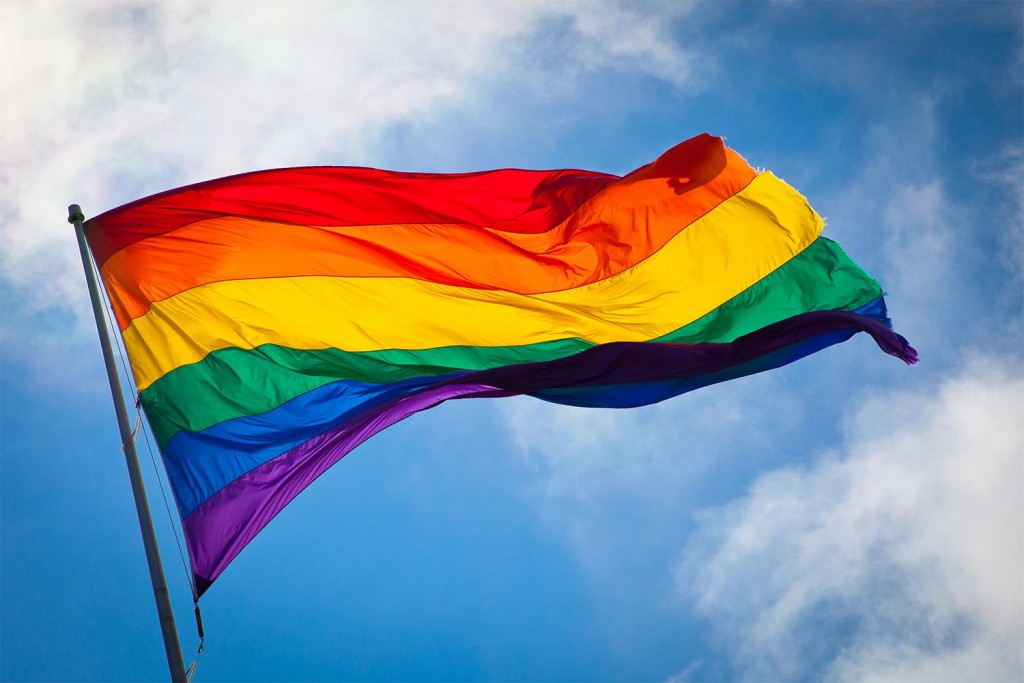LGBT Activists Working to Silence Freedom of Speech
There is a real danger in the upcoming struggle for religious liberty. Those who oppose the teaching of the Catholic Church will do their best to make it sound like we are preoccupied with homosexuality. We are not. Ideally, it is a footnote to marriage and sexuality. However, the world wants to fight about it and we must fight the battle where we are engaged and the culture has engaged on issues regarding sexual morality and marriage. It’s hard to stay positive when we are always defending the faith rather than teaching it.
This article by Andrew Walker helps organize our thinking about the current threats and those yet to come. Expect years and years of litigation. This should not steal our joy in the sharing the gospel which is not, first of all about sexual morality. The Gospel is good news about Jesus’ redemption and the offer of God’s love, forgiveness and healing. Sexual morality, on the contrary, is about the way we live in light of the good news. The world almost always gets this wrong. They always put law before grace; obedience before redemption. Gospel is about what God has done; obedience is how we respond.
– Al Kresta

If passed, the Equality Act would empower the government to discriminate against those who do not accept a sexually permissive understanding of human nature that denies sexual complementarity.
Building on the momentum from the Supreme Court’s Obergefell ruling that redefined marriage throughout America, LGBT activists working with Democratic lawmakers have unveiled a new bill titled “The Equality Act.” The brevity of the bill’s title matches neither its scope nor its impact on federal law and fundamental liberties found in the Constitution. If enacted into law, the Equality Act would further erode religious liberty, transform public opinion on sexuality, and harm the public perception of those who believe in traditional or biblical sexual morality.
The bill would create federal anti-discrimination protections on the basis of sexual orientation and gender identity in public accommodations, education, employment, and housing. To do so, it would amend the 1964 Civil Rights Act to add “sexual orientation” and “gender identity” as protected classes (SOGI). In short, the Equality Act would offer the same types of protections extended to other groups (on the basis of race, color, religion, and national origin) protected under the Civil Rights Act of 1964.
The move comes after legislators and activists have been unable to pass the federal Employment Non-Discrimination Act (ENDA). But the Equality Act goes much further than ENDA ever dreamed, offering a comprehensive umbrella of protections based on the disputed categories of sexual orientation and gender identity.
Marginalizing Dissent
The Equality Act represents the most invasive threat to religious liberty ever proposed. Were it to pass, its sweeping effects on religious liberty, free speech, and freedom of conscience would be historic.
Aside from the enumerated protections that give rise to conflict between sexual identity and religious liberty, by elevating sexual orientation and gender identity to the level of race, the law’s effect would functionally equate those who don’t agree with it with racists and label them perpetrators of irrational bigotry. Indeed, to favor the Equality Act is to oppose and actively stigmatize the moral convictions that millions of Americans adhere to with abiding sincerity and deep religious precedent.
The bill’s stated intentions and its actual consequences are very different. While the bill purports to protect individuals from discrimination, the Equality Act would discriminate against those who do not agree with a regime of laws premised on sexually permissive understandings of human nature that deny sexual complementarity. It would thus create a new form of discrimination by socially isolating certain beliefs.
Problematic Premises
The underlying philosophy that gives rise to the Equality Act is problematic. Passing anti-discrimination statutes on the basis of sexual orientation and gender identity lacks both the philosophical warrant and the cultural necessity of protections based on race.
The 1964 Civil Rights Act rightfully corrected a legal regime of dehumanizing and systematic discrimination based on skin color. It did so for good reason: the color of a person’s skin has no relation to his or her moral action, while sexual orientation and gender identity do. Unlike race, sexual orientation and gender identity are known through conduct, which can and should be ethically evaluated.
Secondly, in most cases race is readily apparent, while sexual orientation and gender identity are not. No one other than the person claiming a particular orientation can tell whether such a claim is authentic. Third, protected classes such as race are immutable and involuntary, while sexual orientation and gender identity are not always fixed. It is unwise to craft public policy on a view of sexuality and gender identity that is subject to possible fluctuation. Fourth, there has never been a systematic regime of laws aimed at demeaning the existence of LGBT individuals comparable to Jim Crow. (I’m indebted to Ryan Anderson for these insights. For more on these arguments, see his new book, Truth Overruled: The Future of Marriage and Religious Liberty.)
The Equality Act tries to shut down debate by treating sexual orientation and gender identity as topics beyond debate. That’s simply not true. Ambiguity persists in the social sciences as to the definition and origin of sexual orientation and gender identity. Enshrining heavily contested and politicized categories in the law poses problematic consequences for those whose moral and/or religious convictions conflict with rapidly evolving conceptions of sexuality.
Religious Liberty, Conscience, and Speech Violations
The Equality Act has enormous repercussions for religious liberty, free speech, and freedom of conscience, especially in education, public accommodation, employment, and federal funding.
In education, it would elevate sexual orientation and gender identity to protected class status in all public schools. Many parents would be unable to provide their children with an education that doesn’t conflict with their moral or religious convictions on sexuality and gender. Dissent on sexual orientation or gender identity would be considered particularly suspect and harmful. Students who harbor different convictions about sexuality and gender would be made to feel inferior to and alienated by their teachers and peers.
All public accommodations and programs would be prohibited from denying any good or service to persons on the basis of sexual orientation and gender identity. This sounds acceptable in theory, but it leaves no room for accommodating the viewpoints of those whose services, speech, or creativity are used to serve wedding ceremonies. Consider the cases of florists, photographers, and bakers who have had no problems serving gay customers for years, but have objected to providing their services for gay weddings. The Equality Act leaves these individuals defenseless by failing to accommodate their sincere religious beliefs and by failing to distinguish between the dignity of gay individuals and the particular conduct (such as wedding ceremonies) in which some cannot in good conscience participate.
The Equality Act would require all entities receiving federal funding not to consider sexual orientation or gender identity as a factor in their programs. Again, this sounds acceptable in theory, but it would require withdrawing any public funds from institutions that believe that marriage is the union of one man or one woman or that men and women are not interchangeable categories. Moreover, it isn’t clear whether religious colleges who receive federal funding would be required to alter their student conduct expectations to align with federal law.
To complicate matters, the bill goes out of its way to strip away any notion of religious liberty by audaciously stipulating that the Religious Freedom Restoration Act (RFRA) cannot be appealed to by individuals, businesses, educational institutions, or religious institutions.
Were this bill to become law, traditional Christian, Jewish, and Muslim sexual morality would immediately be treated as suspect and contrary to federal law. This breathtaking attempt to relocate historic religious belief outside the bounds of polite culture is unacceptable and would have negative consequences for millions of Americans.
We must always remember the teaching function of the law. Law communicates standards of decency, conduct, and custom. Over time, if current ideology concerning sexual orientation and gender identity becomes further ingrained, the Equality Act would work to undermine the view that Christian or traditional sexual ethics are reasonable and can be sincerely held by people of good will. The Equality Act teaches a view of human embodiment that is contrary to orthodox Christianity. Christianity embraces the body and soul as an integrated whole; each person is a unique creation who was created male or female. Male and female are not arbitrary, socially imposed constructs. They are rooted in our biology. In contrast, the worldview behind the Equality Act assumes an “expressive individualism” where our bodies become instruments of the will, capable of being re-created according to preference and desire.
What Should Be Done?
Individuals who support LGBT rights but also recognize that no citizen or institution should be penalized for sincerely held traditional beliefs about marriage, sexuality, and gender should oppose this legislation. Christians who desire the law to resemble the truth about marriage, sexuality, and gender should likewise be opposed. Expansive protections for some that lead to restricted liberties for others do not advance equality or tolerance. Instead, they cause coercion and subjugation.
To safeguard against threats to religious liberty, Senate and House leadership should quash the bill. Granting special rights to others while denying the religious liberty and conscience rights of others is unacceptable. Furthermore, citizens should voice their concerns to their elected officials.
The Equality Act demonstrates the need for a legislative countermeasure. Thankfully, one exists. Called the First Amendment Defense Act, this proposed legislation would help reduce or potentially neutralize some of the threats posed by the Equality Act. The First Amendment Defense Act would protect individuals and institutions who believe that marriage is the union of a man and woman from government intrusion and coercion.
Unity and Compromise—Not Coercion and Conformity
There is no compelling reason to deny a gay individual access to his or her favorite restaurant. It is nonsensical to prevent a gay individual from purchasing batteries or being treated at a hospital. But that isn’t what the Equality Act attempts to fix, because those problems are extreme, and so rare as to be virtually nonexistent. The Equality Act instead paves over the consciences of those who cannot in good faith condone conduct they believe to be immoral by providing services for a same-sex wedding ceremony. Again, such conflicts arise not over the personhood and dignity of an LGBT customer, but over participation in particular conduct that some find morally unacceptable.
We don’t need to “fix” good law by complicating it with this intrusive Equality Act. If we allow the market to settle what is and isn’t good business practice, individuals are free to vote with their dollars. Stores that discriminate against gay individuals won’t receive my money. Over time, decreasing profit harms the feasibility of business that persists in bad, discriminatory business practices.
The Equality Act is not a step toward unity and compromise, but conformity. If citizens on both sides of the aisle could magnanimously agree that no side should suffer discrimination—as the First Amendment Defense Act seeks to guarantee—that would be real progress.
Andrew T. Walker serves as the Director of Policy Studies for the Ethics and Religious Liberty Commission of the Southern Baptist Convention.








